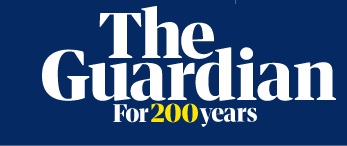The EU
Officials had to stay up late on Tuesday night as their political masters squabbled – because even with Cop30 imminent, member states could not agree on the EU target for cutting greenhouse gas emissions. For Brussels, long the global champion of climate action, without which there would be no Paris agreement, taking so long to agree its NDC was extraordinary.
The row shows the extent to which the rightwing political backlash against climate action is rattling the bloc. France and Germany, formerly champions of the net zero agenda, are both undergoing political upheaval. Several smaller eastern European states, including Hungary and the Czech Republic, are vocally hostile to green policy.
In the end, the NDC was underwhelming: a range of 66.25% to 72.5% cuts by 2035, compared with 1990 levels, as part of a bloc-wide effort to reach 90% cuts by 2040. The plan was criticised by some green groups as too feeble.
The European Commission has shown itself increasingly combative with Beijing on green issues: climate chief Wopke Hoekstra told the Guardian this summer that the EU would no longer go it alone on climate leadership and that other countries – China was clearly in his sights – must step up.
But the tone at Cop30 could be more conciliatory: if there is some way to present an alliance between the EU and China to save the planet, in the absence of the US, it would be a diplomatic triumph.
The Alliance of Small Island States (Aosis)
Small island states play an outsize role at Cops, acting as the moral conscience of the world, reminding rich countries of their obligations and big emitters of their responsibilities. They were a major force behind the Paris agreement and are bitterly disappointed to see that the fulfilment of the 2015 treaty seems far away, as temperatures creep up beyond the 1.5C threshold.
They will aim to hold all countries – big and small, rich and poor – to their collective obligations and promises.
They now have powerful legal backing: the small Pacific island of Vanuatu led a challenge that resulted in judges at the international court of justice ruling that countries must protect the climate from harm and that greenhouse gas emissions are the cause of that harm.
The full implications of this decision have yet to be felt, but Aosis will come to Cop determined to see it is enforced. Another key issue for the islands is the “transition away from fossil fuels”, agreed at Cop28 in Dubai, but the subject of fierce opposition and backsliding last year. Brazil has been wary of finding space on the agenda for this to be discussed but Aosis and its allies will want to see clear progress.
NDCs are also in their sights and Aosis wants to ensure a clear path can be found to remedy their inadequacies.
Least developed countries (LDCs)
The world’s least developed countries are the ones with most difficulty at this Cop – even just the logistics of funding a delegation to come to Belém and brave the extortionate cost of accommodation have proved too much for some. Many LDC delegations have been small and poorly funded in the past but this year is proving more challenging than usual.
For the LDCs, last year was a key Cop, as it was the first time the UN framework convention on climate change had properly discussed climate finance for the poor world. While the outcome was a disappointment to many, they still have high hopes that new forms of climate finance can be found to help them lift their people out of poverty without suffering the blight of fossil fuels. Many members of the grouping are also suffering under high debt burdens, so ways to lift this are essential – for instance through mechanisms known as “debt for climate swaps” as well as more traditional grants under climate finance.
The Baku to Belém roadmap, a blueprint for climate finance published on the eve of Cop30, will be key to LDC demands. They want to see climate finance turned from the vague promises of last year to the beginnings of a firm funding programme.


